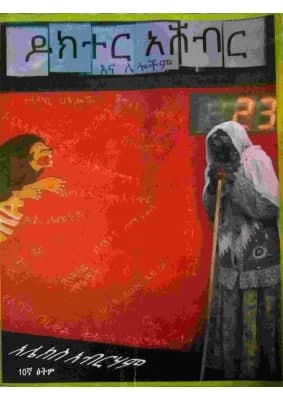Alemayayehu Eshete (June 1941 – September 2, 2021) was a well-known and influential Ethiopian singer and songwriter in modern Ethiopian music. Alemayehu emerged in the 1960s and became one of the most popular artists of his era. He was known as the “Ethiopian Elvis Presley” for his unique fusion of traditional Ethiopian music and Western rock and soul. Alemayehu was a product of the Ethiopian music scene in the 1960s, which was heavily influenced by western music. Alemayehu had a profound influence on the country’s music for more than 60 years. He had played a significant role in pushing the boundaries of Ethiopian music and exploring a new style from the traditional music of earlier generations to the contemporary musical sounds present in Ethiopia today.
Childhood and Early Life

Alemayehu was born in Addis Ababa, Ethiopia, in June 1941, to Ethiopian parents. His father, Eshete Andarge, was a taxi driver, and his mother, Belaynesh Yusuf, was a homemaker. Unfortunately, Alemayehu’s parents separated when he was only 6 months old. Following this, his mother took him to Dessie, in the northern part of Ethiopia, where he was raised until the age of 3. Later, Alemayehu’s father decided to return him to Addis Ababa for better educational opportunities. Alemaehu joined the Christian Training Institute boarding school in Addis Ababa. It was there that he developed a keen interest in music. As a missionary school student, Alemayehu used to read the Bible and sing holy songs. Alemayehu, as a young man, had an inclination toward art. Before pursuing a career in music, Alemayehu had participated in drama. He had even been a boxer for a short period of time.
Family
Alemayehu Eshete was married to Ayehu Kebede Desta. He had seven children and six grandchildren.
Music Life of Alemayehu Eshete

Alemayheu Eshete began singing spiritual songs. However, he switched to the secular music when he litsened to rock and roll music. While he was in school, Alemayehu was introduced to American and Western music, which quickly became a source of inspiration for him. He got moved by Elvis Presley and began impersonating him by copying his style, looks, and moves. Alemayehu then gained popularity when he performed covers of popular rock and roll songs at his school. Even more, he broadened his horizons and started playing in clubs around Addis Ababa.
Alemayehu Eshete, at the age of 20, got his musical career off to a promising start when he was spotted singing in the Addis clubs by Colonel Retta Demeke, a musician in the famous Addis Ababa Police Orchestra. This gave him the chance to enroll in the Police Orchestra, where he learned a lot about music and discipline. Until 1960, he worked as a singer at state events and hotels.
Later, Alemayehu, together with his friend Girma Beyene, founded a band named the Alem-Girma Band, which was one of the earliest modern independent bands at that time. However, following the overthrow of Emperor Haile Selassie I, Alemayehu’s career began to suffer because there were no club venues that would give him exposure. Yet Alemayehu still managed to achieve success through his music, thanks to a French producer, Francis Falceto, who brought his music to the West and helped popularize it through releasing various compilations of his music. Moreover, he gained more popularity when he released a compilation of compact discs titled Buda Musique’s Ethiopiques.
Alemayehu, throughout his music career, was able to share his music all over Ethiopia and abroad, making more than 380 records. He has been praised for his creative compositions, his unique blending of traditional Ethiopian and jazz music, as well as modern music elements. “Addis Ababa Bete” and “Temar Lije” are some of the most popular songs from Alemayehu’s career.
Death of Alemayehu Eshete

Alemayheu Eshete, at the age of 80, passed away on September 2, 2021, leaving behind a vast and influential body of work. It was purportedly told that Alemayehu struggled with chronic health issues in his last years of life and ultimately lost his battle with heart disease.
Related Articles








0 Comments